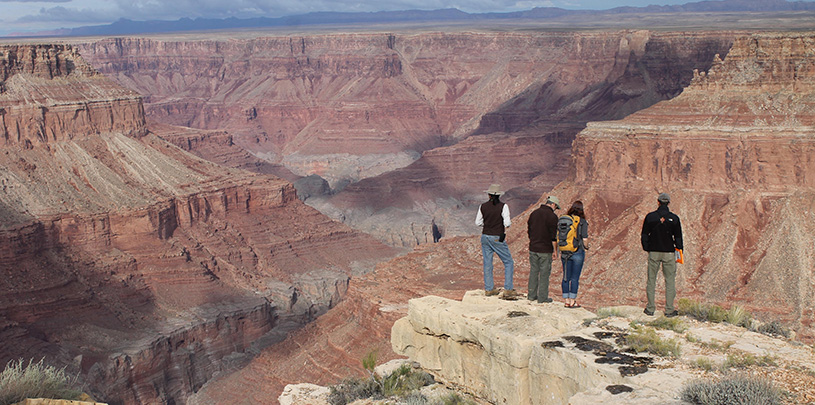
 by Roger Clark, Grand Canyon Director
by Roger Clark, Grand Canyon Director
A newly released poll of Arizona voters shows broad support for the proposed Greater Grand Canyon Heritage National Monument.
Havasupai, Hopi, Navajo, and Hualapai leaders joined Arizona Congressman Raúl Grijalva in proposing the new monument in October 2016.
The monument would further protect existing federal lands from new uranium mines and better conserve cultural places of historic and scientific interest. It would also recognize the aboriginal homeland of the Grand Canyon’s native peoples and honor their contribution to the canyon’s rich natural and cultural heritage, including knowledge about its history through millennia.
Eighty percent of 500 voters surveyed support the establishment of the Greater Grand Canyon National Heritage Monument. More than eight times as many voters strongly support the monument (58%) as strongly oppose it (7%).
These results are consistent with another recent poll that found 73% of Arizona’s voters favor the new monument and other polls that show how strongly Arizonans favor additional protection for the Grand Canyon.
Clearly, Arizonans value the Grand Canyon. It contributes to the economies of local communities and is deeply appreciated by an incredibly diverse cross-section of citizens around the state.
The poll also found that Arizona voters are much more likely to support candidates who support the new monument. More than three in five (61%) say they would be more likely to vote for a member of Congress who supports the creation of the Greater Grand Canyon National Heritage Monument. Furthermore, it found overwhelming support (85%) for designating new national monuments throughout the state.
The Greater Grand Canyon Heritage National Monument proposal is the culmination of decades of Native American and ally opposition to uranium mining on public lands that surround Grand Canyon National Park. In 2012, more than 300,000 citizens commented in favor of the 20-year ban on new uranium claims ordered by the secretary of the interior. Havasupai and other tribal councils were joined by the City of Flagstaff, businesses, chambers of commerce, ranchers, hunters, Coconino County, and the gateway town of Tusayan in supporting the temporary ban. A monument designation would now make that ban permanent.
The White House has signaled its commitment to consider monuments "connected to people and communities that have not been historically represented in national parks and other federal sites."
Please join Havasupai, Hopi, Navajo, and citizens throughout the nation—as well as Arizona voters—in urging President Obama to better protect the entire Grand Canyon, including its precious waters and rich cultural heritage.
Comments (1)
Leave A Comment